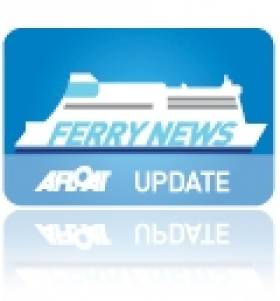Displaying items by tag: UKDenmark route closure
New Sulphur Rules Cause Closure of Last UK-Scandinavian Ferry Service
#RouteClosure - EU sulphur rules to be introduced in 2015 have ultimately led to the closure in advance of the only ferry service linking between the UK and Scandinavia, writes Jehan Ashmore.
The DFDS Seaways service operated by ro-pax Sirena Seaways made her final sailing yesterday from Harwich to Esbjerg in Denmark, marking an end of era dating to 1875.
The Danish operators for a brief period in 2011 also operated Irish Sea services, had closed the North Sea route due to the inability to sustain substantial additional costs that would be accrued when the EU's new sulphur directive environmental law is effective from 1 January, 2015.
The North Sea route had been struggling in recent years with high costs and low utilization as passengers and freight switched to longer distance road transport. Another blow was the loss of tax-free sales and increasing competition from low-cost airlines with passenger totals falling from 300,000 to around 80,000 and a declining industrial cargo market between the two countries.
The service which was operated by the 22,000 tonnes ro-pax Sirena Seaways since 2003, is to be deployed to another DFDS service linking Estonia and Sweden.
Stena Line freight customers which had an agreement to use the DFDS route from the UK to Scandinavia will instead be focused on the operators other East England route, Immingham-Esbjerg. The 18 hour route is serviced by a pair of modern ro-ro vessels.
The emissions regulations will also have a significant economic effect for Stena Line. Their Scandinavian ferry operations will face more than £100,000 per day in extra fuel costs or around £41m annually having to use more expensive low sulphur fuel.





























































